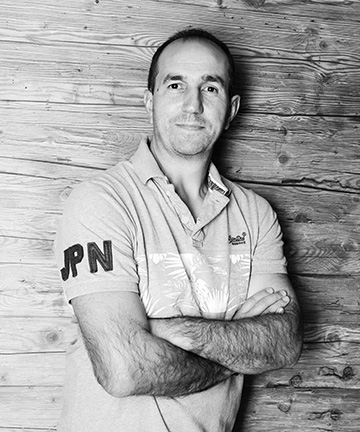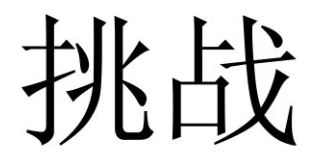
Samuel Arba-Mosquera
For this installment of Senior Member Insights, we talk with Samuel Arba-Mosquera. Samuel is an optical/visual researcher at SCHWIND eye-tech-solutions GmbH, Germany. In addition to leading the SCHWIND Biomedical Engineering Office and his R&D work, he oversees the R&D department‘s students program and contributes as an industrial tutor and course contributor in refractive, lens and corneal surgery to Miguel Hernandez University, Spain, to Ulster University, U.K., and to the University of Santiago de Compostela, Spain.
Samuel has 20 years of experience in R&D in optics and vision and expertise in the development of algorithms for refractive surgery. Samuel and his team at SCHWIND eye-tech-solutions collaborated with Jorge Alió’s group at Vissum to develop the PresbyMAX product, with which more than 15,000 treatments have been performed to date.
What first interested you in pursuing science?
I really do not know. But I remember being a little child, maybe four to six years old, and already saying I wanted to become a scientist. Years later, I pursued my physics degree and, after 1.5 years working as a programmer, I read about a job opportunity in small startup company in the medical laser business. I thought, “I have to try it.”
So at 24 years of age and with a solid job with a good salary close to my hometown, I decided to move to a startup company, without clear expectations for surviving, with less salary and 600 kilometers from home, in a big city—Madrid, Spain.
What aspect of your current work do you find the most interesting or exciting?
The fact that there is no real routine; every day is different, even if there are topics, such as management, documentation, and organization, that are recurrent.
In particular, being in the medical device industry, I feel so good about doing something that may truly help patients. I do not perform my research and development to “please the market,” but to help our market serve their market—that is, I always think whether that particular idea may actually reach a status of making better diagnosis/treatments for the patients, and not merely developing it further because it is new and is “mine.”
Have you encountered a period where you have been discouraged in your pursuit of science? If so, how did you persevere?
Yes, a couple of times; it is almost always when bureaucracy takes over, and the overhead for routine tasks takes over and represents the vast majority of my time. Finding a balance between all of the necessary aspects of the job is mandatory for success.
I remember how bad I felt when the laser company for which I was working years ago (when I moved to Madrid) failed, and almost discontinued operations for reasons external to the safety or the performance of the device. Those were hard times.
What professional resources do you rely on to stay active and engaged with your field?
I do attend professional conferences about four to six times a year, and I pay very close attention to always reserving time for social and networking activities. I am active in some of the science social-media channels. I also try to keep an open connection to the academia and offer my support in teaching or preparing lectures and materials related to my domain of expertise.
What tips for successful networking do you have for early-career professionals?
This may sound old-fashioned, but use online social media only as an extension and support of your social abilities—do not rely on social media alone, on its own, to build up your network. Beyond that, do not fear the breaks, like coffee or social events, of meetings and congresses, use them to gently approach the “big names” in your field. At the end of the day they are, or will be, your peers.
“My personal advice for students is that they study to learn as opposed to study for ‘passing the tests’.”
What is one piece of advice that you wish you were given as a student, or early in your career?
My personal advice for students is that they study to learn as opposed to study for “passing the tests.”
For early career, my advice would be to learn to think. This is usually not taught at the university level, but makes the difference between being a good lab scientist who is able to replicate experiments, or follow advice to conduct new experiments, and a scientist who is able to develop new ideas.
What have you learned by being a mentor to others, and what have you learned from mentors who helped shepherd your career?
Being a mentor to a number of different degree-pursuing students as well as leading a small team, I learned to truly delegate: show them confidence, and not merely mercy; truly delegate tasks to them and do not over-supervise every single step; give them positive feedback, particularly when challenges are faced, any time they come to you, but do not hesitate in asking them for advice or ideas as well. Everyone in the team will grow faster together than individually. And share the joy of success.
Actually, from my mentors I learned too much to be listed here. From my math professor at secondary school, I got the advice to learn always with critical thinking—and not to believe what teachers and professors tell you due to their academic authority, but because it is sound and understandable. You can only usefully learn what you can truly understand. A second piece of great advice that I got early in my career was the Chinese philosophy that no matter what the problem is, the answer is always in you. You simply need to dig deep enough to bring it to light.
What are daily habits that help you to be successful?
I do not think there is “the” recipe for success. I also do not consider myself as being particularly successful, but fortunately having reached a reasonable level of success. And yet, as for daily habits: keeping calm, establishing a relationship with your team—belonging to the team means that the responsibility is shared, but also implies the success is shared.
My particular distinctive point is that I am lazy, meaning that I work for a short time—around six hours a day in two stints of three hours each, for around 30 hours a week. But during this time, I am able to work focused, hard, and intense. In other words, in my case, it works better to go the extra mile by giving 120% for 3 hours, instead of working for 10 to 12 hours with decreasing levels of attention.
How important are leadership roles in career development, and how do you hone your leadership skills?

“Tiǎo zhàn—pick up the best of a challenge.”
Leadership roles are very important, but more as an archetype or paragon and less as a sign of force and might. Think of the difference between auctoritas, the type of leadership I like, and potestas, another widespread form of leadership. I try to follow and deserve the auctoritas sense of leadership, both as a leader as well as a follower. 挑战 (tiǎo zhàn)—pick up the best of a challenge.
What advice do you have for young scientists who are about to interview for their first job?
Be honest. Show your strengths, but do not hide your weaknesses—maybe present them in a positive manner, as your weaknesses make you human. Show also your soft skills: how could you fit the team, how you could contribute to success beyond your academic knowledge.
Keep in mind that your knowledge is a prerequisite, otherwise you would not have got to the interview. It is all about whether you are able to bring your knowledge into progressing that particular team and that particular task/role. Make it clear that with your contribution, the team, lab, department and company will grow. But remember: Underpromise and overdeliver.
At this point in your career, what are you most looking forward to next?
I am involved in too many exciting projects to pick a single one. But the next milestone for my career—and it’s something that I ignored or neglected for quite a long time—may be to be more involved in managerial tasks, such as pursuing an MBA or other type of business education for scientists. This would help me have a better judgment of which projects may be game-changers, and which ones will remain advanced playgrounds.
If you weren’t in the sciences, what would be your dream career?
I do not know. I do not regret any of my experiences. I was a devoted judo master in my youth, until the age of 24, so I could imagine something related to sports. But thinking about passion, I would love being a musician, though my skills remain at a basic level.
Nothing of my reasonable success, though, could happen without the support of my family: my beloved wife and children. They are always by my side, in every step and decision of my career. They help me in my work-life balance, to stay grounded, think out of the box, and to be able to go the extra mile when it is time for work. I very much enjoy spending as much time as possible with them and this actually helps replenish me for the next tasks.
